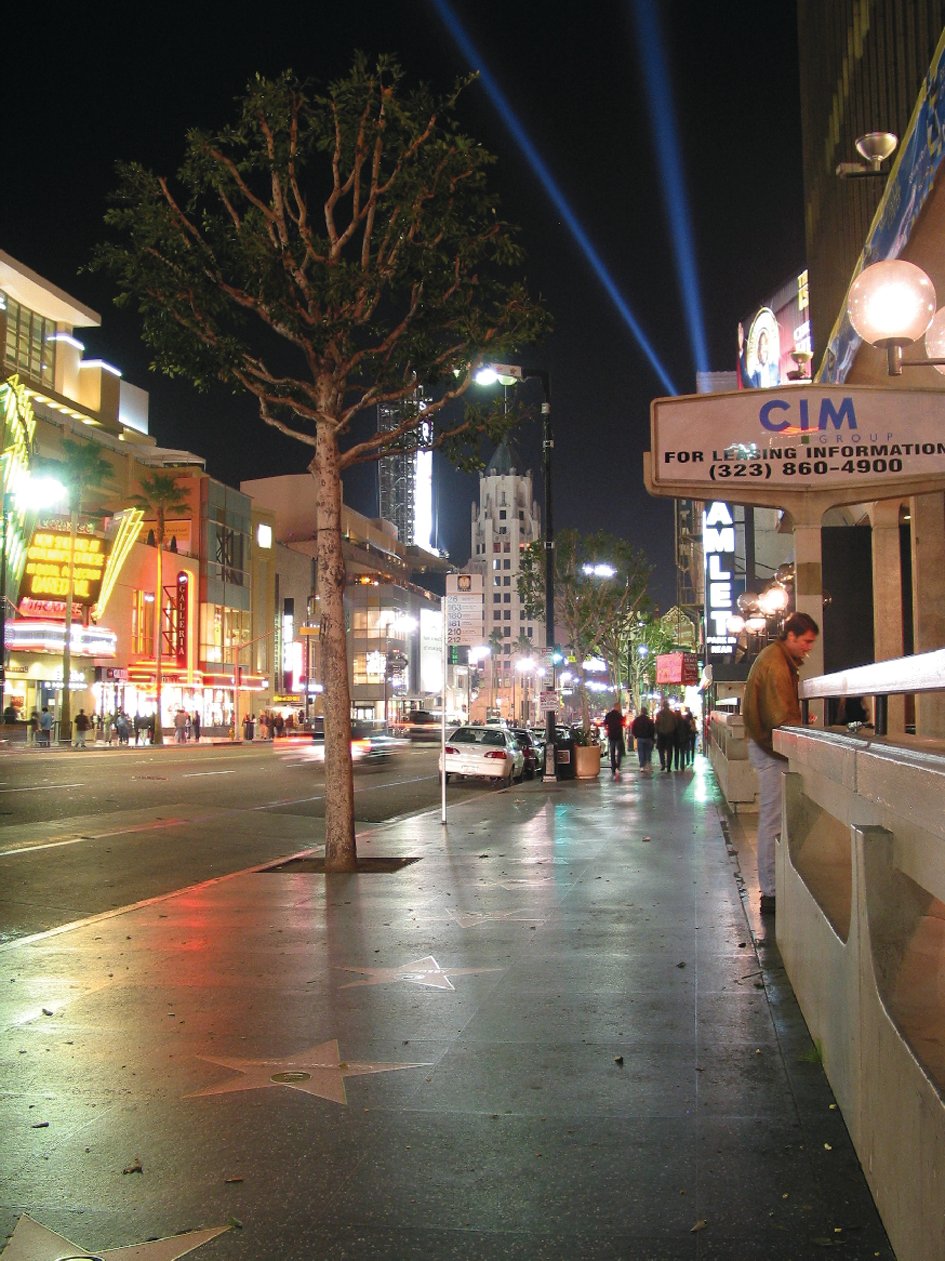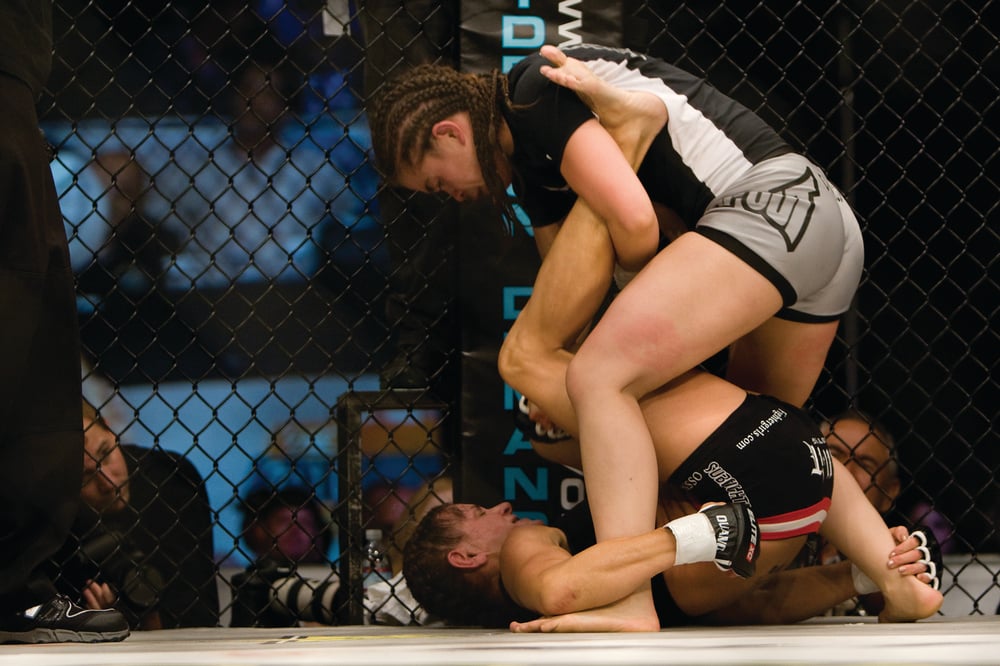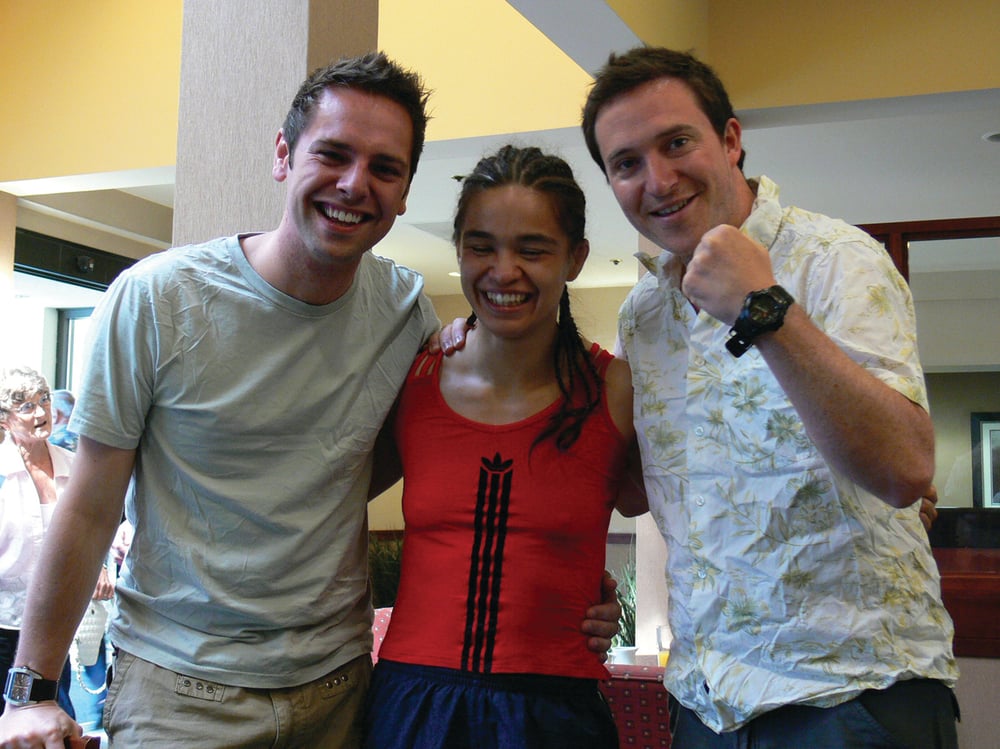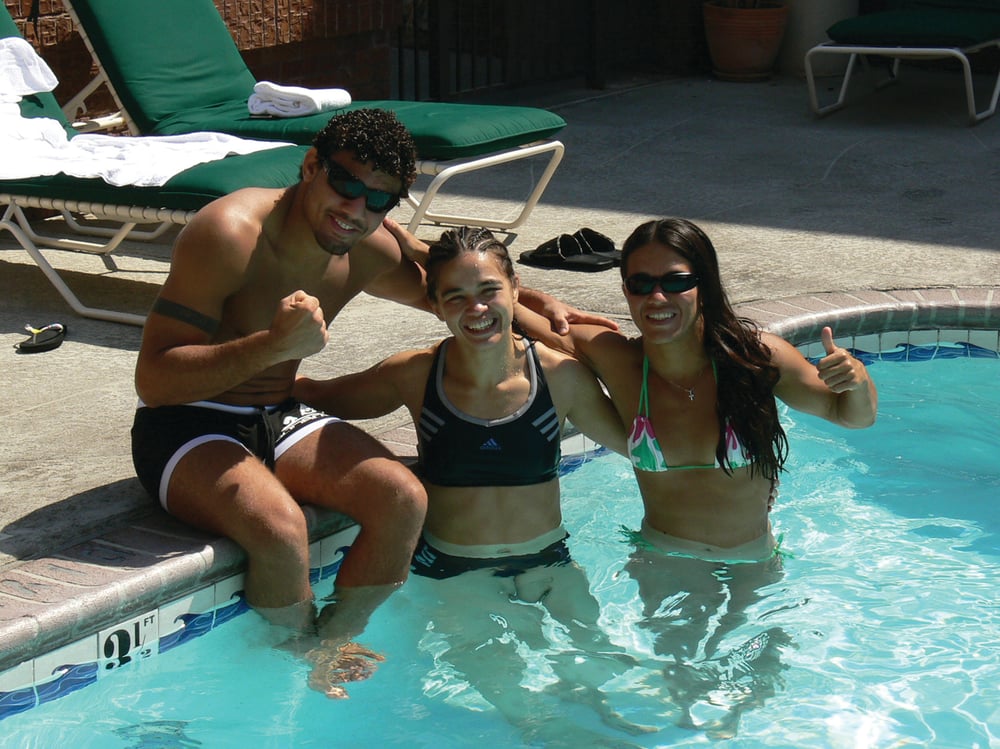
Issue 043
November 2008
Fighters Only writer and professional fighter Rosi Sexton is the top female fighter in the UK. This is her account of the biggest test of her career to date: cracking America.
I remember when the call came. It was 11 o’clock in the evening – word was that EliteXC was looking for an opponent for Debi Purcell. When Karl (my coach and partner) put the phone down, he asked me, “How soon can you get fit?”
‘Fit’ is a relative term. I was training twice a day, but fight fitness is a whole different animal. We knew immediately that it would be tough. I’d be moving up from 125lb to 130lb. Debi was coming down from a heavier weight and she’d already had several months to get ready.
From the start, we had a lot of media interest surrounding the EliteXC deal. It started with a small piece in the Manchester Evening News. Radio stations, TV channels, magazines and national newspapers picked up the story and for a week we had reporters and cameras in and out of the gym. I even made an appearance on the Richard and Judy show. My favorite news headline was, bizarrely, in the New Zealand Herald: “Hypergeek turns hardcore cagefighter”. Several documentary companies approached us about covering our story.
There was a lot of work to do. We had to get a strategy together that gave me a good chance of coming home with a win. Controversially, EliteXC use three-minute rounds for the women. That wasn’t good for me. Three minutes isn’t long when you’re trying to set up a submission. It meant rethinking some areas of my game, and working a lot on my striking. I needed to be able to hold my own on my feet.
Karl had me doing two hard sessions a day. After a week, I felt like I was dying. Everything I owned was permanently covered in sweat. I ached continually. The rest between sessions never seemed long enough. I woke up each morning wondering how I was going to get through the day. Gradually though, things came together.
The last week before we were due to fly out, two guys from Minnow films turned up to film the final stages of my training. They’d got a commission from the BBC to come to California with us. Nick and Dave arrived on the Monday and for the rest of the week they stalked us. Very soon all thoughts about trying to come across well on camera were pushed to one side as we struggled with the job in hand.
They quietly shot hours of training footage. They filmed me being interviewed for Sky News. They sneaked up on me while I was asleep on the mat. They left the camera running when I lost the plot during a disastrous sparring session and followed me into the changing rooms when I threw a sulk and panicked that I wasn’t good enough. They followed us home and asked questions about everything from the history of the sport to what I was eating for lunch. They got jumped on by our three-year-old son, Luis. They even tried to interview him about what Mummy and Daddy did. Luis summed it up: “They play wrestling at the gym”.
At last, it’s time to leave. I’m flying out to LA on the Saturday. Karl’s teaching in Estonia and will be joining us on Tuesday. Nick and Dave are flying with me. I arrive in LA Saturday evening and try to get myself into local time. I arrange to do some training with Chris Haueter, a Brazilian jiu-jitsu black belt Karl knows in LA. After all that time traveling, it feels good to shake the cobwebs off and do a little light sparring before we head down to the beach.

Monday is medicals day. California has the toughest regulations when it comes to licensing. I arrive at the doctor’s office just after 8am and I’m greeted by mountains of paperwork. I sign all the forms without reading some of them properly, and hope that I haven’t consented to donate a kidney.
Soon they have me jumping through hoops. Copy this diagram. Remember these three words. What is 100 minus seven? Minus seven again? Embarrassingly, I get one wrong. I suggest that maybe it’s due more to jetlag than brain damage, but the doctor eyes me suspiciously and asks me a few more before he’s satisfied. The medical mystery tour continues. It’s late afternoon and the documentary crew has disappeared to film with Debi.
I suppress a vague and irrational sense of betrayal and head back to do some training of my own.
Karl arrives and I’m glad to see him. The support helps, and it feels good to be able to hand over responsibility for getting to the right place at the right time and sorting out any details along the way. All I have to think about now is the fight itself.
On Wednesday, we’re driven to Fresno. I meet Debi for the first time in the hotel reception. She sees me and comes over to say hello. She was one of the first female fighters I watched years ago when I started MMA. She seems relaxed and friendly, and under different circumstances, I’m sure we’d have lots to talk about. Seeing as we’re going to be beating the shit out of each other in a couple of days time, we keep it brief.
On Thursday everything starts to happen. As soon as I wake up I check my weight. I’m 129.8 lb; all I have to do now is stay there until three o’clock. I have a mouthful of water and a square of dark chocolate.

There are interviews and photographs to take care of. I’m ushered into a meeting room with the commentators for the event, Stephen Quadros and Mauro Ranallo. They smile and shake my hand and it feels scarily like a job interview. It’s so they can get some ‘inside information’ for the commentary. After that, it’s photographs and video interviews. All this passes while we wait for the weigh-in. Karl’s been online in the hotel room. “She says she’s going to knock you out,” he tells me. “Oh. Can I see?” “No,” he replies. I’m on a pre-fight internet ban. Karl doesn’t want me getting distracted by what people are saying, except for the odd snippets that he chooses to feed me.
To someone used to the UK’s fight scene, the weigh-in is a torturous process. It starts with a lot of sitting around and filling in of forms. Everyone, fighter or cornerman, must have a California State Athletic Commission (CSAC) license.
One of the commissioners runs through the rules then the weigh-in finally gets underway. The scales are weighing slightly heavier than they were earlier, and I have to strip off behind a towel to make weight. Debi comes in at 129lb. We face off and pose for pictures. She doesn’t look as big as I was expecting, but that could be deceptive. Finally, it’s done and we can go to eat and drink.
The morning of the fight, I get my hair braided at a nearby hair salon. The camera crew follow us, as always. People are curious about the cameras, and before long the staff and customers know that I’m fighting on Showtime that evening. Soon a group of them are asking me questions. This feels strange – normally, I play down what I do. Now I’ve got a whole bunch of women who think I’m a celebrity.
At around 4.30 we set off for the venue. We arrive to find that the changing and warm-up areas are in tents outside – in 100-degree dry heat. We’ll be out here for the next two and a half hours until fight time. There are officials everywhere. Our bags are searched on the way in. There are strict rules about what you’re allowed to have to eat and drink: only fresh fruit and plain water. The whole scene is chaotic. It feels claustrophobic.
We find a curtained-off area that nobody is using and make camp. There’s something very lonely about pre-fight nerves. You can be surrounded by your coaches and teammates and a bunch of other fighters who are all doing the same thing as you, yet you feel completely and utterly alone.
Eventually, it’s time to get changed. I put my gear on and head to the warm-up area. It’s brutally hot. There are several large fans, but they just seem to be blowing hot dry air around. My asthmatic lungs don’t like this heat, and my legs feel heavy. I start warming up.
Fifteen minutes later, Karl has me doing some pad work. He hits me with the pads a few times, trying to get me moving. I feel clumsy and uncoordinated. In a short time, I’m going to have to go out there and perform and I still don’t feel ready. We’re in the final moments of the warm-up now. The cameras are watching me, following everything I do. Finally Karl says, “Look, it doesn’t matter whether you win or lose. Just go out there and enjoy the process.” It’s a lie, and we both know it, but it’s a good lie. The pressure comes off a fraction.
My mind kicks into gear and suddenly I’m ready to fight. Karl sees it. “That’s it, that’s what we want.” I catch him with a right cross and a left hook. I’m good to go.
Inside the arena it’s cold with the air conditioning. We hear Debi hitting a few last combinations on the opposite side of the holding area. Next thing I know, I’m stood in the tunnel. I’ve been through this nine times before. It never gets any easier.
Then it’s time. The ring announcer is doing his thing. I don’t hear most of it. I walk up the steps and into the cage, bouncing a little to get a feel for the surface. Karl goes around and meets me, giving me a sip of water while I wait for them to bring Debi in. This bit always seems to take forever.

Herb Dean brings us into the center of the cage for final instructions. Few fighters ever hear what the referee says at this point. We touch gloves. My mind is clear now. I’ve jumped off the diving board, and can only wait to hit the water.
The fight starts and suddenly I’m in a whole different world. The first time I get hit it’s almost a relief. I feel a thud, but there’s no pain and I’m not rocked by it. I know I can deal with this. Now it’s just a case of letting my training take over.
The fight is a blur. I remember Karl’s voice, always there, suggesting moves, reminding me what I should be doing, telling me how much time is left. We both land some good shots. The wrestling work I’ve been doing has paid off, and I catch a couple of takedowns. With under a minute to go in the third round I find myself standing, trying to pass Debi’s guard. I try for a cartwheel guard pass, just for the hell of it. Debi goes for a heel hook, and we end up in a leglock battle. Knowing time is running out, I throw a few last punches, then it’s all over.
Karl’s telling me to get my hands up. I do as he says. Then he tells me to smile. That’s harder. I have no idea who’s won and now it’s up to the judges. We’re called to the center of the cage for the verdict to be announced. It’s a split decision. The first score is announced as 30-27 to me, the next 29-28 to Debi. This is the first time I’ve had to stand and wait to hear my fate, having never fought to a decision before. There’s a lot riding on this, but for some reason, I’m not as anxious as I imagined I would be.
“The third judge scores it… 30-27 to the winner, from Manchester, England!” Watching myself back on video I see the moment where I realize that I’ve won. My face lights up with the relief, the elation. Until that moment, I wouldn’t let myself believe it.
Later, Nick gets a few words from me about how it feels to have won. It’s one of those wonderful moments where everything seems perfect. I smell the air and look up at the night sky. These few minutes right now is my drug.
As I soak up the euphoria, we wander back into the venue to watch the rest of the show. People congratulate me on a good fight. Many people noticed Karl’s work in the corner and he gets compliments from top guys at ProElite and the CSAC. The owner of King of the Cage describes it as “The best corner work I’ve ever seen”. He really is that good.
We drive back to LA the next day. Wandering around Hollywood I’m recognized by a few people who‘d watched the fight on TV the night before. It’s only just starting to sink in how big this sport has become.
On the flight back, I ask Nick whether he’s enjoyed the experience. He commented that the week had been some of the most emotionally intense filming he’d ever done. Was he converted to MMA? He didn’t commit himself, but he thought he might find himself watching it on TV from time to time.
The next few days I spend recovering from the jetlag and gradually getting back to what passes for normality. I sleep, spend time with Luis, go to the gym. It feels good to celebrate the win with my teammates and all the people who had helped me get here. A week later, I’m back on the mat doing a bit of training. It’s great to relax now the pressure has gone, and just enjoy training again.
As always, I have a few days of post-fight depression after the elation wears off. Recovering from the jetlag seems to take longer than normal. My appetite isn’t quite right, but slowly things settle back into normal rhythms.
Several weeks on, I’ve already forgotten what the pre-fight fear and stress feels like. The intensity of the daily sparring and conditioning sessions, and the deep, aching tiredness that went along with them is a distant memory. Gunni, one of my teammates, is fighting soon.
I feel a tiny twinge of envy, especially when he comes back with a KO victory. It’s early days, but that familiar itch to fight is building. Before long, we’ll have word on my next opponent, and the cycle will start all over again.














